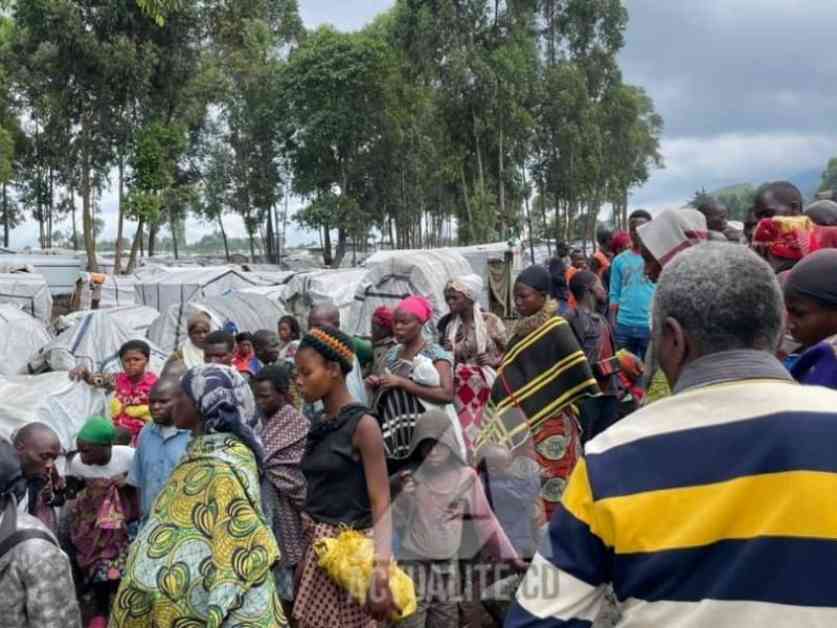In North Kivu, displaced people fleeing the fighting between the Armed Forces of the Democratic Republic of Congo and the M23 rebels are being affected by Monkeypox. These displaced individuals are living in makeshift sites in Goma and its surroundings, as well as in the Nyiragongo territory. Between June 24 and July 10, the province recorded 21 cases of Monkeypox in three health zones of Nyiragongo, Goma, and Karisimbi. According to the provincial health director of North Kivu, most of the patients are displaced persons.
«The first case appeared in the city of Goma, specifically in the Karisimbi health zone among the indigenous population, the other cases that followed are mostly among the displaced individuals in the camps in Goma and in the Nyiragongo territory. These people live in close quarters and face many issues related to hygiene, nutrition, and housing. Monkeypox is extremely contagious, and in these conditions, it is concerning for both the population and health system officials who need to implement approaches and programs to combat this disease,» said Désiré Buyana, the coordinator of the national health promotion communication program in North Kivu.
Monkeypox is a rapidly spreading infectious virus. The Provincial Health Division is calling for assistance. «We need the contribution of everyone. We require support from technical and financial partners such as UN agencies, local and international NGOs working with humanitarian assistance because it is becoming an additional problem exacerbating the hardship faced by the population during this time of insecurity,» he added.
The disease can be prevented through protective measures advised by authorities. «To protect against Monkeypox, it is important to avoid any physical or sexual contact with individuals showing signs of Monkeypox or any bodily fluids from sick individuals: blood, urine, saliva, vomit, sweat, semen. If you yourself show suspicious signs of Monkeypox or have been in contact with a suspicious person, immediately wash your hands with soap or ash, and go to the nearest health center,» advised Prisca Kamala, the health advisor to the governor of North Kivu.
Monkeypox, now referred to as Mpox, is a disease caused by an animal-origin virus. It is primarily transmitted through direct contact with an infected animal, even without visible signs, or between people. Transmission can also occur through sexual contact and from mother to child during pregnancy.
Yvonne Kapinga, in Goma
Additional Information:
Monkeypox is a rare disease that belongs to the same family of viruses as smallpox. It was first discovered in 1958 when outbreaks occurred in monkeys kept for research. Human cases were first reported in the Democratic Republic of Congo in 1970.
The symptoms of Monkeypox in humans are similar to those of smallpox, but usually milder. They include fever, headache, muscle aches, and a rash that develops into characteristic pustules. The disease is usually self-limiting, meaning it resolves on its own without specific treatment. However, in some cases, complications can occur, especially in immunocompromised individuals.
Preventive measures such as vaccination have been effective in controlling outbreaks of Monkeypox. Vaccination campaigns targeting at-risk populations, including healthcare workers and those living in affected areas, can help prevent the spread of the disease and protect vulnerable individuals.
Public health authorities in regions where Monkeypox is endemic or where outbreaks occur regularly should prioritize surveillance, early detection, and rapid response to contain the spread of the virus. Education campaigns to raise awareness about the disease, its transmission, and preventive measures are also essential in controlling outbreaks and protecting public health.




















